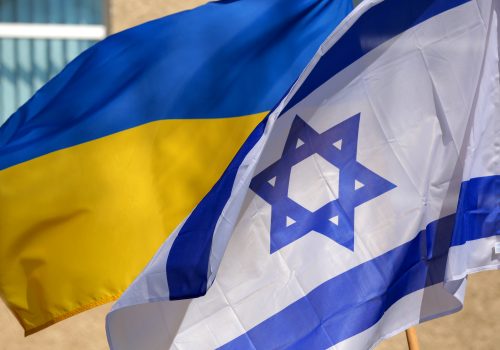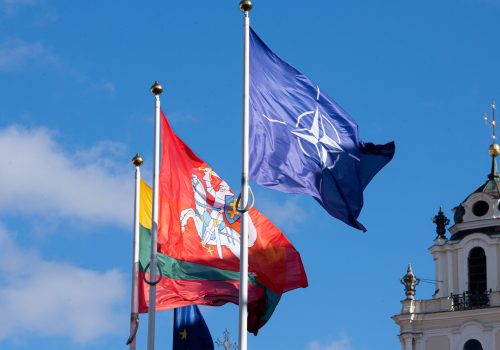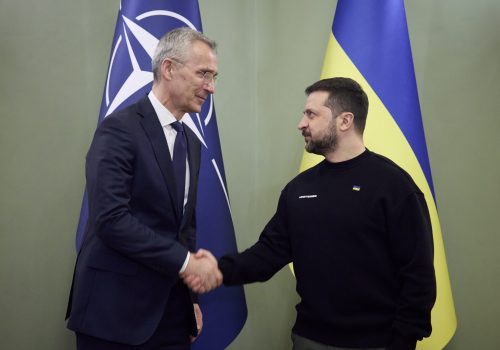Prigozhin was a torpedo to the idea that the West must not humiliate Putin
A version of this article originally appeared in El Mundo. It has been translated from Spanish by the staff of Palacio y Asociados and is reprinted here with the author’s and publisher’s permission.
Two weeks have passed, and few clues have emerged from the theatrical failed coup in Russia. It was closely followed by millions of spectators worldwide, who were captivated by the sensation of attending a gruesome reality show, although aware that, behind the scenes, leaders were carelessly playing with lives and fortunes.
The questions surrounding the June 23-24 events—which, were it not for the nuclear warheads and the casualties, would easily merit the qualification of vaudevillian—have multiplied. One is particularly relevant: What are the consequences for the war in Ukraine? More specifically, how does this plot twist affect Europe’s security?
If one imagines matryoshka dolls (Russian stacking dolls) as a symbol of Russian politics, the Wagner organization has existed because of—and for—Russian President Vladimir Putin. It depended—with all the ambiguity the term implies in the context of the whims of an all-powerful tsar and the personalistic nature of power—on three institutions also apparently controlled by the president: the Russian armed forces, its military intelligence (GRU), and the Federal Security Service (FSB). Notably, the intervention of these institutions in the rebellion—if any—was unclear.
The structure built by Putin has become a snake pit. Perhaps a “house of cards” is a more fitting term. Having previously refrained from sanctioning Yevgeniy Prigozhin, the ruthless leader of the Wagner paramilitary group, Putin spoke following the mutiny of punishing his enemies, even if such efforts are complicated by Wagner’s penetration into the Russian elite. The first arrest related to these consequences (still unconfirmed) appears to be that of Russian General Sergey Surovikin.
Prigozhin had been engaged in a power struggle with the military leadership for some time. Specifically, his attacks have targeted Russian Minister of Defense Sergei Shoigu and Chief of the General Staff Valery Gerasimov. The confrontation was exacerbated after last February’s invasion by the increasing relevance that the head mercenary and his followers have gained. Their relative effectiveness compared to the regular Russian army—which collapsed in the early onslaught of the war—brought Wagner into the spotlight inside and outside of Russia. In addition to its military actions, the group’s cruelty went viral on social media, as did its sermons in the courtyards of the prisons Wagner forces toured, recruiting convicted criminals of all kinds.
The mercenary leader’s strong connection with the great leader—a connection forged during the murky stage of the president’s public debut in Saint Petersburg in the 1990s—seemed to give Prigozhin a blank check. He first emerged on the scene as “Putin’s chef,” a nickname earned from managing the catering service of someone well acquainted with the dangers at the table, himself being a master in the use of poison as a political weapon.
Before the insurrection, the outspoken warrior had been making accusations of all kinds of irregularities, misconduct, and mistreatment against his two enemies: that they had claimed credit for Wagner’s victory in Bakhmut, that men were dying so they could “get fat in their mahogany offices,” and that they had denied his fighters necessary ammunition and support. And, most importantly, that they had deceived Putin about the progress of the military campaign.
The speech that kicked off the mutiny goes even further. No one had dared to question Putin’s justification of the invasion based on a victim mentality incessantly fed to the Russian people. The few in Russia who dared to dissent, such as Vladimir Kara-Murza, immediately found themselves behind bars.
Thus, Prigozhin’s words should be considered inflammatory: a qualified member of the establishment dared to openly and boldly denounce the falsehood of “the story that there was insane aggression on the part of Ukraine, and they were going to attack [Russia] together with the entire NATO bloc.” Careful not to mention the president by name, he stated that, contrary to Kremlin messaging, the war served “not to demilitarize and de-Nazify Ukraine,” but rather “it was launched for completely different reasons.” He implied that the disaster was orchestrated by high-ranking military officials (driven by economic greed and vanity), in combination with “some oligarchs.”
[The] turmoil has shattered the thesis that the Euro-Atlantic community must not humiliate Putin for fear of provoking him, with the unpredictable consequences regarding the use of nuclear weapons that doing so would entail.
Putin’s response was not long in coming. In his televised address on June 24, he labeled the uprising as “a stab in the back of [the] country and [the] people.” His references to the Russian Empire—a frequent topic of his outdated musings—were to be expected, but his implicit identification with the ill-fated Tsar Nicholas II was surprising.
He equated the situation triggered by Prigozhin to the prelude of the upheaval of 1917, which led to the collapse of the system. Was he seeking, in his association with the tragic figure, a symbolic reincarnation of the tsar—in his case, having made the right decisions to avoid falling into the black hole of violence that characterized those years when “Russians killed Russians, brothers killed brothers”? It was a diatribe made with his citizens in mind, who retain a collective memory of that terrible period and who found their livelihoods crushed during the 1990s following the dissolution of the Soviet Union.
During the uprising, the lack of response was salient, both from the siloviki (the economic and political elite) and the common people. There was no notable support of—or clear opposition to—Putin, who exploits the fact that people cling to the status quo out of fear of the unknown.
Prigozhin has nonetheless proven to be a torpedo aimed at Putin’s narrative. He punctured the myth of a war of necessity, of an inevitable war for historical justice. He undermined Putin’s explanation of an existential struggle against US aggression disguised as NATO. Furthermore, the turmoil has shattered the thesis that the Euro-Atlantic community must not humiliate Putin for fear of provoking him, with the unpredictable consequences regarding the use of nuclear weapons that doing so would entail. This thesis has justified the countries’ stinginess in sending to Ukraine certain equipment classified as offensive and the West’s delay in accepting stark realities, such as the urgent need for full operational readiness in the air.
The Euro-Atlantic community must move away from the habit of delaying decisions based on speculation about the consequences of its actions for third parties. It needs to look beyond the pipe dream of an immediate peace negotiation based on the stalemate on the front or a Kremlin-asserted “right” to subjugated areas. NATO allies’ opportunity to demonstrate determination when facing Russia will come soon—on July 11 in Vilnius at the NATO Summit.
Ana Palacio is a former minister of foreign affairs of Spain (2002-2004) and former senior vice president and general counsel of the World Bank Group. She is also a member of the Atlantic Council’s Board of Directors.
Further reading
Thu, Jul 6, 2023
Ukraine needs NATO membership, not an ‘Israel model’
New Atlanticist By Ian Brzezinski
Granting NATO membership to Ukraine is critical to ensuring it wins the war against Russia quickly and decisively.
Tue, Apr 11, 2023
Defining success for NATO’s Vilnius summit: A primer
Issue Brief By Charles Barry and Christopher Skaluba
A successful NATO summit in July requires significant progress on a host of NATO’s political and military priorities, especially those enumerated at Madrid.
Wed, Jul 5, 2023
Here’s the ‘concrete’ path for Ukraine to join NATO
New Atlanticist By Franklin D. Kramer, Hans Binnendijk, Christopher Skaluba
The upcoming NATO summit in Vilnius should establish a High Level Group to design a roadmap for Ukraine’s fast-track membership.
Image: Russian President Vladimir Putin chairs a meeting dedicated to tourism development in Derbent in the southern region of Dagestan, Russia, June 28, 2023.




